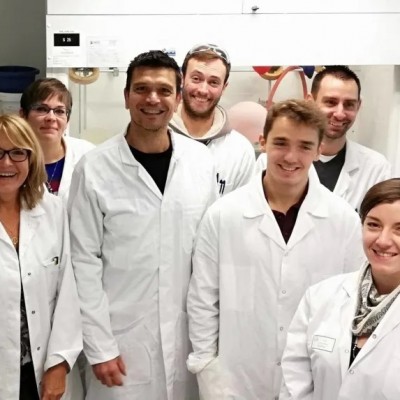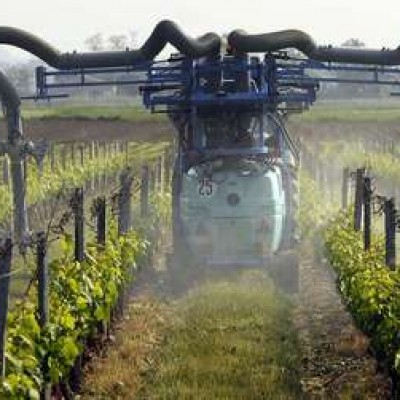Charity dedicated to the fight
against childhood cancer
against childhood cancer
The work of the INSERM team co-directed by Dr Marie Castets (CR1 Inserm, HDR) and Dr Jean-Yves Blay (PUPH, HDR) focuses on cell death and cancers. Thanks to the support of Eva pour la Vie (55,000 euros) and other associations, this team is currently developing these lines of research on rhabdomyosarcomas, osteosarcomas and neuroblastomas ...
"Nearly 500 children in France and 80,000 around the world die each year from cancer. 50 years ago, less than 25% were cured. The situation has greatly improved with the advent of chemotherapy, initially developed. for adults but benefited children. It is estimated that 3 in 4 children are currently recovering. Yet one in 4 children will not recover and this situation has not improved much since the early 2000s. current treatments remain aggressive and are the cause of more or less disabling sequelae in a large number of children.
The duty of a pediatric oncologist is to provide care while preserving the quality of life as much as possible. It is therefore urgent to understand the specificities of childhood and adolescent cancers, and to identify their molecular causes in order to imagine new treatments, more effective and less aggressive for developing organisms.
Our current research project falls within this perspective and aims to understand the mechanisms behind the resistance of tumor cells to death. Indeed, when a cell becomes abnormal, localizes outside its tissue or is in excess, it is normally eliminated by the activation of signals leading to its own death. The ability to resist the onset of this suicide is one of the characteristics acquired by tumor cells. In addition, blocking these cell death programs is implicated in resistance to treatment.
In order to improve the medical management of cancers in children, our project aims to identify the anomalies at the origin of these mechanisms of resistance to cell death and to develop new compounds that could be used as drugs. to restore it.
Our strategy is based on 2 main axes:
1) carrying out so-called large-scale studies to establish a mapping of blocking points in cell death, in particular in response to treatments;
2) the characterization of the role of the abnormalities identified in the transformation of normal cells into tumor cells and their definition as new therapeutic targets, thanks to analyzes on different cellular models, in particular three-dimensional.
Thanks to the support of Eva pour la Vie and other associations, we are currently developing these lines of research on rhabdomyosarcomas, osteosarcomas and neuroblastomas. The dynamic and exhaustive mapping of cell death pathways is in progress for these 3 cancers. Two candidate genes are being studied in rhabdomyosarcoma, in order to define whether they actually constitute activatable molecular levers to restore cell death in these tumors, and thus imagine new therapeutic avenues. "

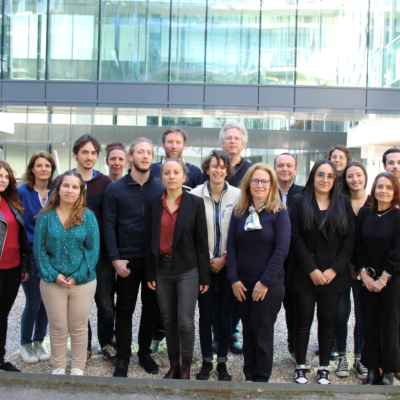
Eva pour la vie supports the Adapted Physical Activity project for children treated for Cancer and Insulin Sensitivity APACIS, led by Professor Marlène Pasquet, pediatric onco-hemato-immunologist at the children's hospital of the Toulouse University Hospital and Justine Thomas, APA teacher and doctoral student, as well as the recruitment of an APA position within this department.
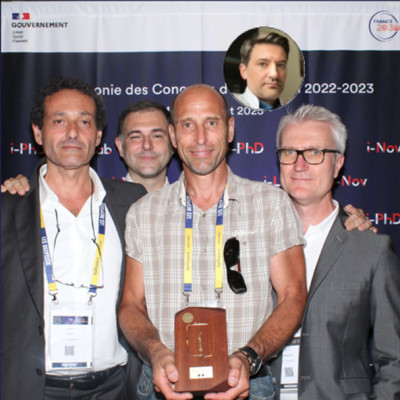
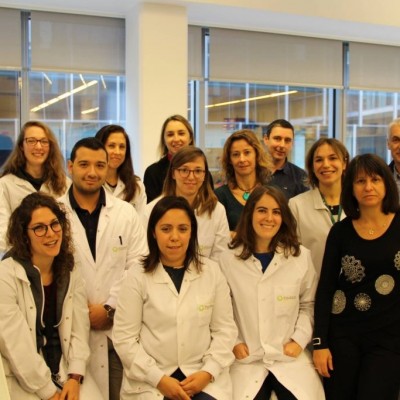
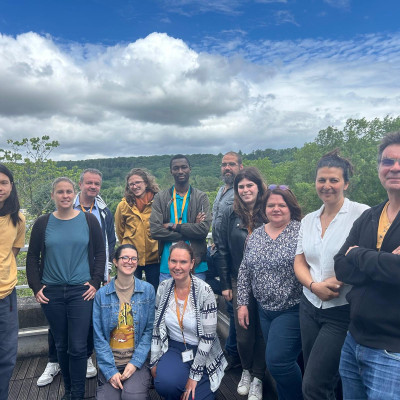
Eva pour la vie & Grandir Sans Cancer have decided to support the work of Dr. Célio POUPONNOT, at the Curie Institute, by funding the Project "Modeling of medulloblastoma using human cerebellar organoids and analysis of the effect of agricultural pollutants" through a grant. This research project includes a crucial environmental research component, the question of understanding in order to try to prevent being as important as the one that aims to better treat children with cancers ...
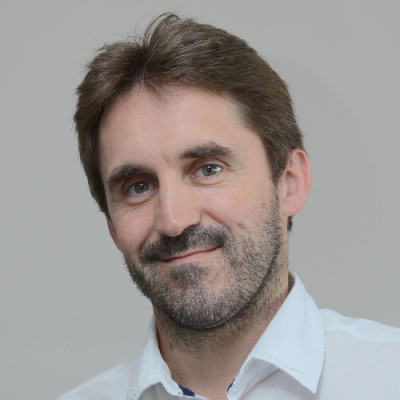
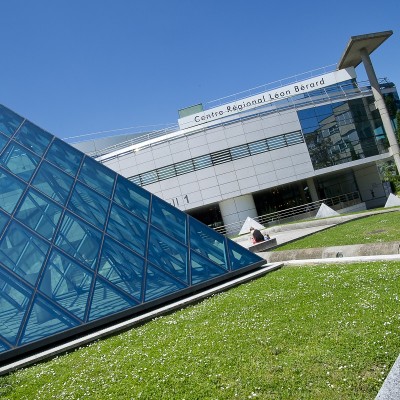
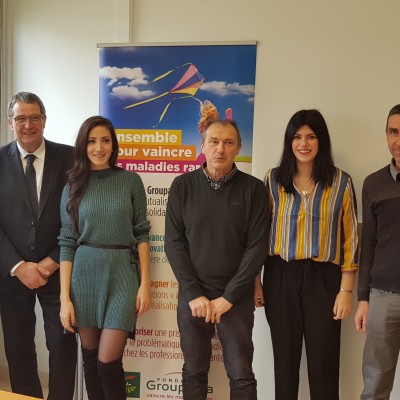
For more than 20 years, this teacher-researcher has been working on cancer. And it's been almost 10 years since he went to kidney cancer or renal cell carcinoma. By joining the team of Dr Christophe Grosset (Inserm, MiRCaDe team), he wanted to use his experience and take a new step forward by working on childhood cancer. He is the initiator of an ambitious project, which involves several surgeons, doctors and international researchers, on the study of nephroblastoma (or Wilms tumor) in children, co-funded by the association Eva pour la vie and Aidons Marina ...
Resistance to treatment is a major clinical problem, in particular in the case of osteosarcomas, bone tumors affecting children or adolescents. Indeed, chemotherapy, associated with surgery, is the central pillar of current treatment. However, many osteosarcomas are or become resistant to these antiproliferative drugs. Recurrences and / or the appearance of metastases are then frequent. 2 out of 5 patients cannot be cured! Osteosarcoma is therefore a pediatric cancer with a poor prognosis for which it is absolutely necessary to identify ways to counteract resistance to treatment in order to improve the chances of recovery for patients.
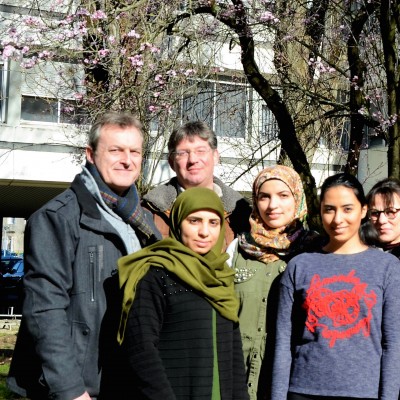
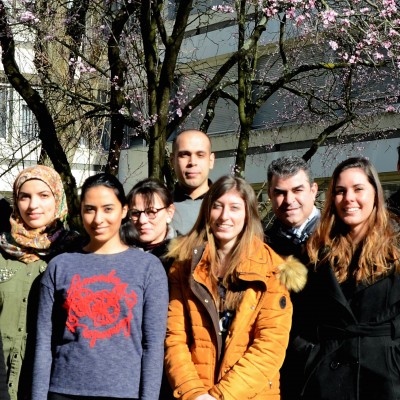
Since September 2014, Dr Martin Hagedorn has been leading a team of researchers (Caroline CAPDEVIELLE , Farah RAHAL, Justine CHARPENTIER and Mélissa MENARD) which devotes its research work to the identification of new therapeutic targets in brainstem tumors and to the improvement of its treatment methods. Work recognized by several European scientific teams & experts.
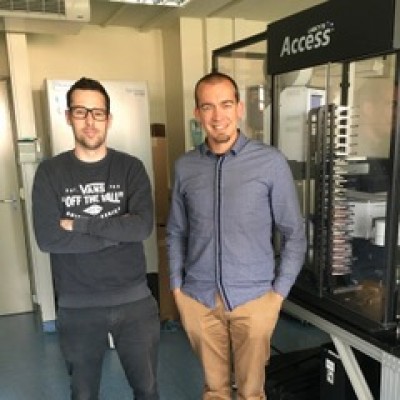
Dr Pasquier's research work mainly focuses on the repositioning of drugs which consists of testing, in new therapeutic indications, drugs already approved by the health authorities. The aim of this work is to identify new therapeutic targets for the most difficult to treat cancers and thus improve the care of patients suffering from these aggressive forms and refractory to treatment . In particular, pediatric cancers (neuroblastoma), brain tumors affecting children as well as adults (glioblastoma, medulloblastoma) as well as certain rare forms of cancer (angiosarcoma).
